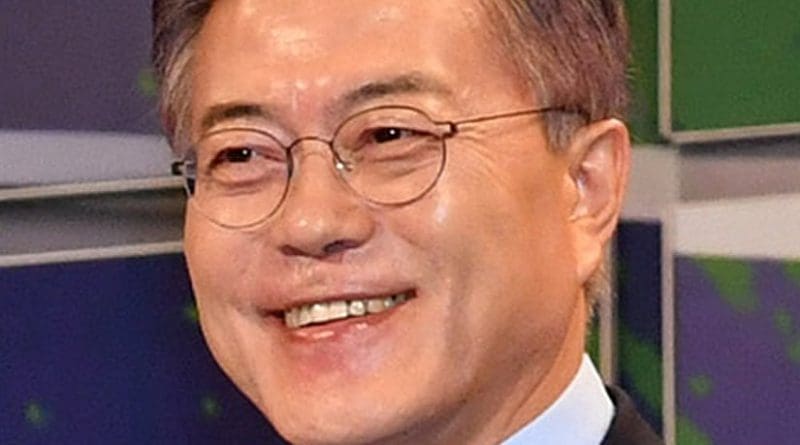Korean Elections And The EU – OpEd
By Antti Tulonen
Riding on its Covid-19 success, President Moon Jae-In’s administration received a decisive vote of confidence in the 15 April parliamentary elections with Moon’s Democratic Party and its junior coalition partner winning a record 180 out of the 300 seats in the National Assembly. The new majority ends Moon’s reliance on the unstable coalition of left-leaning parties under the previous parliamentary make-up and gives the Blue House a strong hand to implement its key priorities.
Domestically this likely means continuation of Moon’s reform agenda, investment into future technologies and income led economic growth.
But what will the victory mean for the South Korea’s foreign policy and the EU?
Moon Jae-In’s land-slide victory was a result of the administration’s successful response to Covid-19. The early severe criticism backfired on the opposition when the South Korean approach of aggressive testing and sophisticated tracking of infections proved a globally hailed success story. In December 2019 the Moon’s Democratic Party had been struggling at the polls because of criticism of its job creation efforts and stalled foreign policy towards North Korea. The successful handling of the corona crisis turned things round and no, Moon Jae-In will capitalize on it to pursue his agenda.
Much of this agenda chimes in with EU priorities. The promised European style Green Deal to make South Korea carbon neutral by 2050 is one example. Renewables will be a major investment focus and the Seoul will introduce its own carbon tax in the footsteps of the EU. However, the plan to phase out public investment in coal both domestically and abroad is especially significant due to the fact that approximately 10% of new coal power being built today is backed by South Korean finance. Mainstreaming of climate in South Korea bodes well for the EU and others looking to build a credible camp in support of stronger climate actions for the postponed COP26 climate negotiations in 2021. A global compact to rescind coal investment, for example, could be a concrete step that South Korea now appears more than likely to join.
South Korea will also try to work with the EU on supporting the multilateral system. Efforts to strengthen global governance have been a corner stone of the Moon government’s foreign policy and will be its go-to solution in face of crisis. South Korea will therefore continue to be on the same page with the EU on many international forums and in face of global challenges to come. For example, Moon administration has been vocal in calling at G20 for globally coordinated actions to counter the economic crisis that has followed in the wake of the pandemic.
The administration’s new strong grasp of the budget and focus on economic revival could re-invigorate Moon’s New Northern Policy including the connectivity initiative to link South Korea to the EU through North Korea, China Russia by rail; and through Arctic shipping could receive new impetus.
North Korea was hardly on the election agenda in the months leading up-to the election due to being side-lined by the corona crisis. In December 2019 the perceived impasse in nuclear disarmament after two years of rapprochement and strong personal involvement of the President Moon parallel to the high-profile turbulent negotiations between North Korea and Trump’s US was still weighing on the popularity of the governing party amid strong hawkish conservative critisism. Despite the policy appearing a hard-sell to the parts of the electorate, Moon is likely to use the electoral victory to stay the course for more enhanced inter-Korean cooperation, especially in absence of progress by US negotiators. So far the EU has not gone beyond statements in its support to Moon’s conciliatory policies, but perhaps the (while likely temporary) absence of high profile US interest and the South Korea’s commitment cooperation could be an opportune moment for the ‘geopolitical Commission’ to assert itself as a constructive and neutral player and offer an alternative plan for the Korean penisula.
The stronger mandate given to Moon should also be good for EU-Korea relations. On 16 April, Josep Borrell spoke with Kang Kyung-hwa, to discuss efforts to fight the global coronavirus pandemic and review the bilateral partnership. They agreed on the necessity of a multilateral approach and also on debt relief for the poorest countries. They also confirmed their intention to hold a summit as soon as it was practical.

